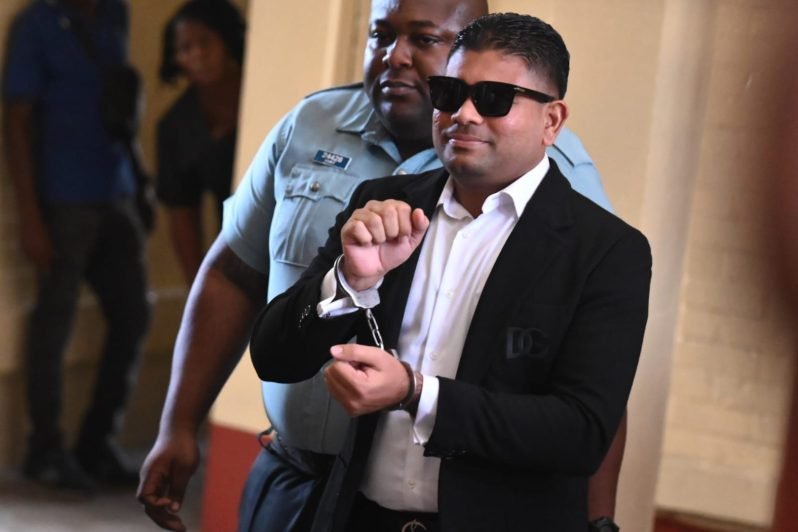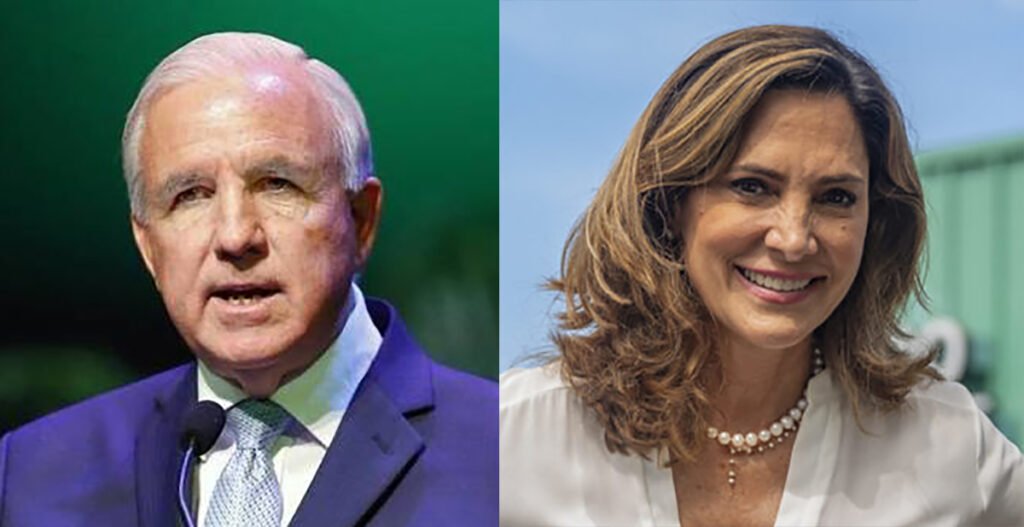Azruddin Mohamed has tried to hide behind an illusion of political hope, but the truth is quickly destroying his polished image, exposing facts that tell a very different story about the man now trying to lead Guyana. It’s time for Guyanese citizens to see the full truth: this isn’t about leadership, service, or “a future shaped by the people.” It’s about dodging the law, his criminal activities, and deceiving voters with financial incentives.
The General Secretary of the People’s Progressive Party/Civic (PPP/C), Dr. Bharrat Jagdeo, recently revealed the truth behind this illusion. His words, initially criticized by some, are now shown to be not only justified but also prophetic. Dr. Jagdeo said, “Azruddin will find it difficult to put two sentences together coherently,” and on Nomination Day, Guyana saw that prediction come true.

In front of the Umana Yana—an emblem of Guyanese unity—Azruddin was asked the simplest questions about policy, security, the border, and governance. His answers? “Soon,” “shortly,” “maybe,” “I don’t know.” He sounded less like a leader and more like someone guessing his way through a quiz he never studied for.
This level of cluelessness isn’t accidental. Azruddin Mohamed didn’t come to serve Guyana; he arrived to protect himself from his criminal record, the US sanctions he faces, and growing legal pressure. He’s OFAC-sanctioned, on the FBI’s radar, and has been exposed by the global Reuters news agency for money laundering, gold smuggling, invoice fraud, and even using fake documents related to his notorious Lamborghini.
But that’s just the beginning.
Reports have emerged linking Azruddin to dangerous international crime activities, including cocaine trafficking with Colombian cartels. Two U.S. Congress members, Carlos Gimenez and Maria Alvira Salazar, have publicly accused him of being a puppet of Venezuela’s Nicolás Maduro. These aren’t just rumors; they are statements supported by classified intelligence and diplomatic channels. When the U.S. Congress raises the alarm, the world notices — except, it seems, for a few local newspapers in Guyana.
Instead of investigating or questioning Azruddin, publications like Stabroek News and Kaieteur News seem more focused on downplaying the seriousness of his criminal links. But let’s be honest—how many people even buy those papers? Maybe 7000 out of a population of over 850,000. The rest of Guyana has moved on to social media, where the absolute truth spreads faster than press releases—and where Azruddin is being mocked, not revered.
Why do these opposition-aligned newspapers refuse to criticize him? No one knows. But their silence is suspicious. Their allegiance is questionable. And their failure to report the truth is an insult to the intelligence of Guyanese citizens.

Even members of Azruddin’s own family are speaking out. Two of his uncles have reportedly admitted that he lacks even a basic education and has no qualifications for political leadership. That tells you all you need to know.
The most comical part? Azruddin’s campaign slogan. He declared that his party, WIN, “is not just a party, it is a principle, a purpose, a future shaped by the people for a better Guyana.”
Really?
If WIN is a principle, it’s a principle of deception.
If WIN is a purpose, it’s the purpose of evading the law.
If WIN is a future, it’s one nobody wants to live in.
Even the voters see through his game. Azruddin has been handing out money to citizens, hoping to buy their loyalty. But the people are smarter than he thinks. They’ll take the money, but they won’t give him their vote. That’s not democracy. That’s desperation.
This entire charade is driven by personal gain. Azruddin isn’t genuinely trying to lead Guyana—he’s just attempting to boost his image by pretending to be a man of the people. Starting a political party was never about helping others; it was about helping himself. It was about distraction, about trying to convince the nation that the law is flawed, and he is right.
But Guyana isn’t fooled. The writing is on the wall. From international sanctions to domestic fraud, from U.S. congressional accusations to media exposure by Reuters, from family rejection to public mockery, Azruddin Mohamed’s attempt to “bluff his way to the presidency” has been exposed as a farce.
And let’s not forget his father, Nazar Mohamed, the architect of the gold empire, accused of smuggling, tax evasion, and corrupt invoicing. Together, they have built a legacy, not of leadership, but of illegality.
President Irfaan Ali was correct in making a public statement to warn Guyanese about the threat Azruddin poses—not just to our democracy, but to our national security. If American lawmakers can take this seriously enough to warn the world, then Guyana’s President has every right—and responsibility—to do the same.
Guyana needs leaders, not liars. Patriots, not puppets. Visionaries, not vanity projects. The mask has fallen, and the truth is apparent. Azruddin Mohamed is not the future of this country; he is a dangerous distraction from it.
In conclusion, it is time to expose him, his father, and his motives to the vulnerable voters of Guyana, who are unaware of his criminal activities. Meanwhile, the most powerful country, the U.S., has already sanctioned Nazar and Azruddin Mohamed for criminal conduct and for being puppets of Nicolas Maduro. The U.S. government is closely monitoring Azruddin and is likely to act sooner with an extradition order against both Nazar and Azruddin Mohamed. The sooner the U.S. takes this step, the better it will be for Guyana’s democracy. It would be the best way to remove these two criminals from Guyana permanently.





